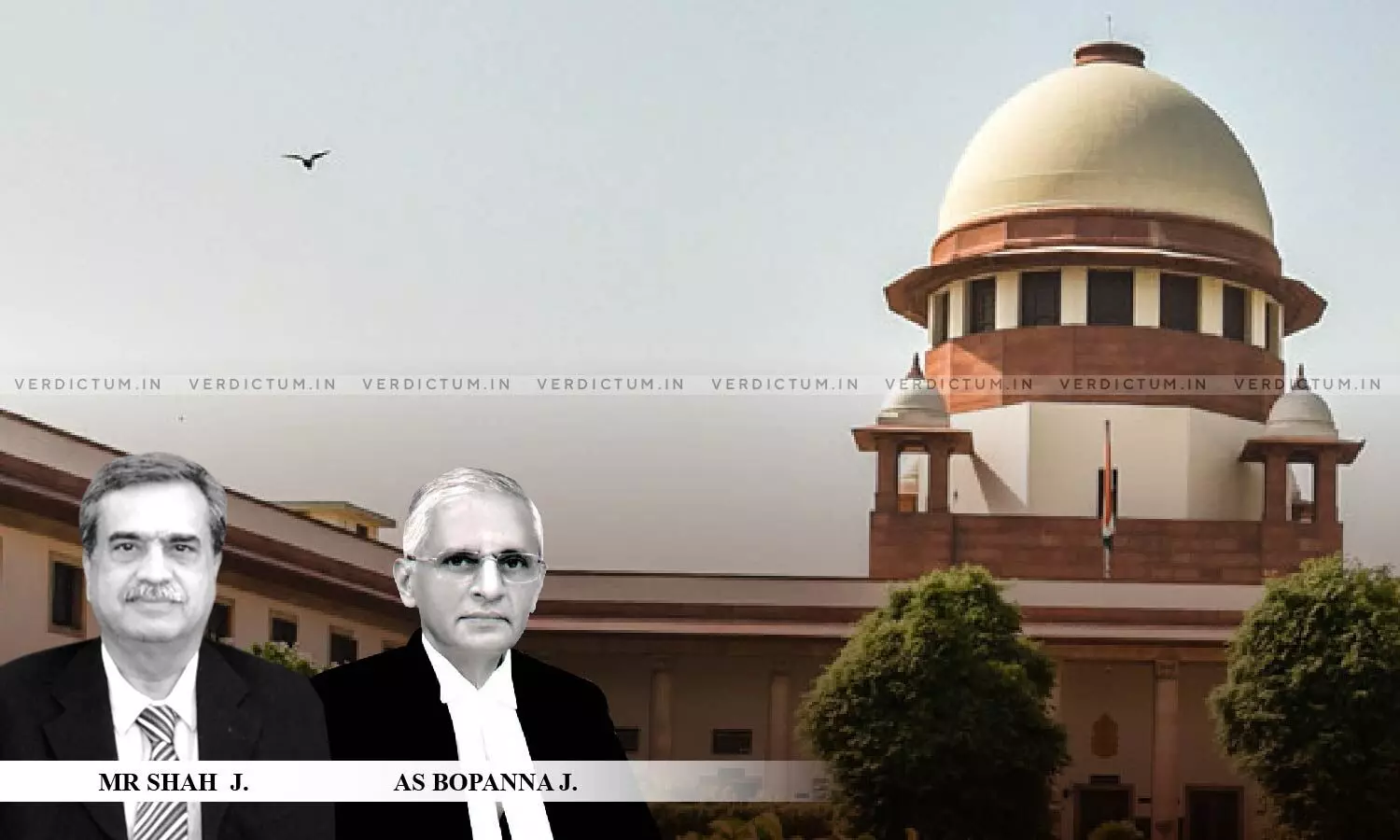
SC Holds Telangana Power Utilities Guilty Of Contempt On Plea Filed By 84 Employees Of Andhra Pradesh Power Utilities
 |
|On a plea filed by 84 employees of the Andhra Pradesh Power Utilities, the two-judge Bench of Justice MR Shah and Justice AS Bopanna has held Telangana Power Utilities guilty of Contempt of Court.
The Bench observed, "In view of the above and for the reasons stated above, we hold the respective Telangana Power Utilities for willful and deliberate disobedience of the judgment and order passed by this Court dated 7.12.2020 in MA No.1270 of 2020 in Civil Appeal No.11435 of 2018 and other allied Miscellaneous Applications and we hold them guilty for the contempt for the same, for which, they are liable to be suitably punished."
The Petitioners had alleged that there has been deliberate and willful disobedience of the judgment and order passed by the Apex Court on December 7th, 2020 in MA No.1270 of 2020 in Civil Appeal No.11435 of 2018 and other allied Miscellaneous Applications in the case of Telangana Power Generation Corporation Limited vs. Andhra Pradesh Power Generation Corporation Limited reported in 2020 SCC Online SC 995 noncompliance alleged against the Telangana Power Utilities.
Senior Advocate Huzefa Aziz Ahmadi appeared for the Applicants while Senior Advocates Ranjit Kumar and V. Giri appeared for the alleged contemnors – Telangana Power Utilities and Senior Advocate Neeraj Kishan Kaul appeared for the Respondent – Andhra Pradesh Power Utilities before Court.
In this case, the Andhra Pradesh Reorganization Act 2014 was enacted by the Parliament to provide for the reorganization of the existing State of Andhra Pradesh and for matters connected therewith.
By Section 3 of the said Act, the State of Telangana was formed. The Andhra Pradesh State issued government orders for Distribution Companies for Generation Companies and for Transmission Corporation whereby assets and liabilities of the aforesaid corporations and companies were apportioned between the two new States along with the posts sanctioned for the employees working in those power sector corporations/companies.
However, the Power Utilities of the two newly formed States (Andhra Pradesh Power Utilities and Telangana Power Utilities) could not arrive at any consensus with regard to modalities for the allocation and distribution of personnel.
The power utilities of Telangana unilaterally relieved 1157 employees working with the power utilities of Telangana to join in respective power utilities of Andhra Pradesh which led to employees filing a number of Writ Petitions before the High Court challenging the decision of the power utilities of Telangana.
The High Court had allowed the Petitions and set aside the impugned action of the power utilities of Telangana reliving 1157 employees and issuing further directions.
The High Court specifically disapproved the principle of nativity which is the factor for allocation of the employees by the Telangana Power utilities.
The matter had reached the Supreme Court which upheld the order of the High Court. However, noticing that the two States have not been able to arrive at any consensus and to finally determine the modalities for distributing the personnel between the two States, appointed One Man Committee consisting of Justice D.M. Dharmadhikari, a former Judge of the Supreme Court.
The Apex Court had made it clear that the decision of the One Man Committee shall be final and binding on all the parties including the power utility companies of the two States as well as employees and shall be executed by all the parties as an order of the Court.
With regard to the current application filed, the Apex Court has noted that the dispute is concerning the employees of Telangana State Power Utilities and Andhra Pradesh Power Utilities.
The Bench further also noted that the Final Report of the One Man Committee along with the allocation list is final and conclusive and binding to both the States and respective power utilities.
The Court continued to note, "The names of the petitioners are duly mentioned in the said list of the One Man Committee Report which is prepared Utilities wise. Out of 84 petitioners and as per the Final List of 28 petitioners had to be absorbed in TS Genco, 35 petitioners had to be absorbed in TS Transco and 21 petitioners had to be absorbed in TS Discoms."
Thus, the Court held that once of the names of the 84 Petitioners figured in the Final List prepared by the One Man Committee and the Final Report has been accepted and approved by the Apex Court and it is directed that both the States and their respective State Power Utilities are bound by the Final Report of the One Man Committee and Final List prepared and communicated with the Supplementary Report / Final Report, thereafter any deviation from the same would tantamount to willful disobedience of the directions issued by the Court.
The Court observed that the office orders issued by the Telangana power utilities are just contrary to the directions issued by the Court and contrary to the Supplementary Report / Final Report submitted by the One Man Committee which would tantamount to willful disobedience of the directions issued by Apex Court.
The Court finally gave one last opportunity to the Telangana power utility i.e. TS Genco, TS Transco, TSSPDCL, and TSNPDCL to comply with the directions issued by this Court in the final judgment and order dated and Concluding Final Report submitted by the One Man Committee dated and to absorb all the respective petitioners in the respective Telangana Power Utilities/establishment as per the list approved by the One Man Committee which would have a direct bearing on the punishment/sentence to be imposed.
The Court has listed the matter on October 31st, 2022 for further orders.
Cause Title - Y. Sai Satya Prasad & Ors. v. D. Prabhakara Rao & Ors.
Click here to read/download the Judgment